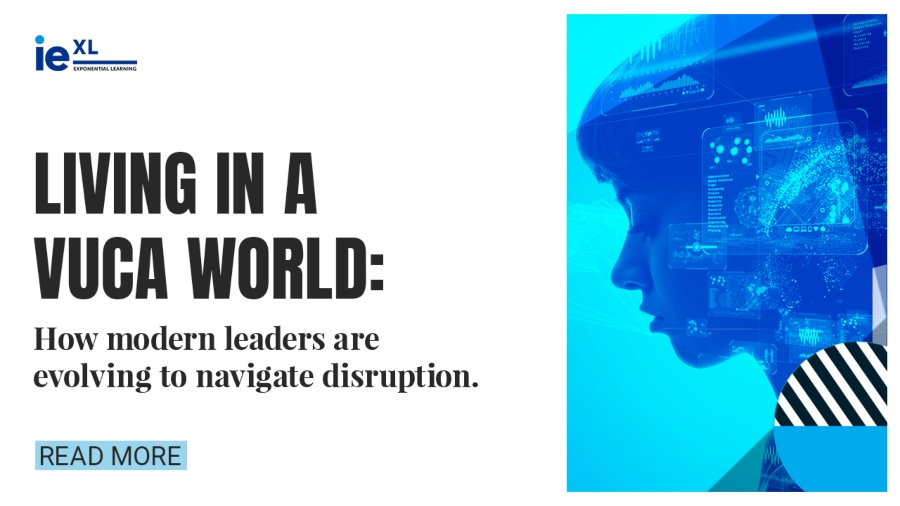Living in a VUCA world: How modern leaders are evolving to navigate disruption

In today’s interconnected world, the business landscape is shaped by a variety of shifting forces. Whether it’s geopolitical issues like Brexit or technological advancements such as Artificial Intelligence, a world marked by VUCA—volatility, uncertainty, complexity and ambiguity—is challenging modern leaders to come up with innovative solutions to new problems.
Things are changing more quickly and dramatically than ever before, which makes it harder to predict outcomes and make smart business decisions. Such uncharted territory can create discomfort for businesses. How can we plan for investment and growth if we don’t know where we’re headed?
The demands on today’s companies and their leaders are increasingly complex, but one thing is clear: complacency is no longer an option. To keep our businesses viable, profitable and ultimately successful in 2020, it’s essential to understand how a disruptive environment affects business and prepare to act accordingly.
Don’t fight the current, ride it
As Professor of Strategy at IE Business School Mark Esposito says, we can’t offset VUCA, but we can learn to navigate it. Rather than fear the unknown, businesses should approach uncertainty as an opportunity for growth. One of the most important ways to do that is by changing our mindset.
Leadership in the 21st century is no longer structured or silo-driven, Esposito argues, but dynamic and fluid. It requires innovative thinking, awareness of interconnectivity and cross-collaboration. We can develop this mentality through habits such as asking different types of questions and trying to understand a problem from multiple perspectives—both those within the business and those of external stakeholders.
Modern leaders need a vision. As technology rapidly evolves, we can’t rely on precedent. The rise of Artificial Intelligence has reshaped various industries in Japan while Fintech has encouraged a rebellion on traditional brick and mortar establishments. These are just two salient examples of how volatility is pushing business leaders to think differently. We must be able to step back and take a look at the bigger picture.
By examining modern workforce trends involving the decisions of leaders in disruptive industries, we can develop the necessary insight to successfully guide our organizations through a VUCA business climate.
Become a better leader in a VUCA world
IE’s Leadership and Strategy in the Age of Disruption program is designed to do just that. Together with business journalists from the Financial Times, industry experts and academics like Mark Esposito help students become visionary leaders in their field—managers, experienced professionals and future leaders alike.
Focused on practical, hands-on learning, the program kicks off with a scenario-based analysis of volatility, uncertainty, complexity and ambiguity. Students will then assess and critique the opportunities offered by the rise of tech disruptions such as AI, blockchain and cryptocurrencies. They will explore the impact of geopolitical instability and become familiarized with Fintech and its impact on brick and mortars. Furthermore, they will learn to forecast changes in the global economy and prepare themselves and their business to adapt and respond to them.
In short, the program turns professionals into sharp, modern leaders ready to navigate disruption, use visionary thinking and develop impactful strategies. For more information about the program, download the official brochure.


